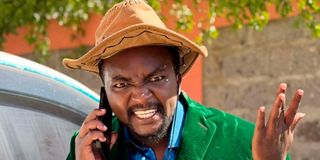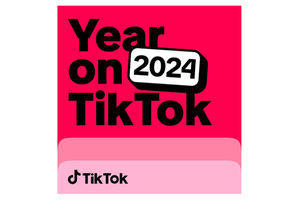
Austin Muigai has carved a niche for himself in Kenya’s comedy scene with his relatable and hilarious content.
Austin Muigai has carved a niche for himself in Kenya’s comedy scene with his relatable and hilarious content. From impersonating the classic ‘uncle’ character to creating viral skits. He spoke to George Mwendwa about his craft which reflects passion, purpose and resilience.
When did your comedy journey begin, and how would you describe your style?
I started a long time ago, when I was still a kid. I would talk, and people would just laugh. I think I have a unique way of looking at things—like, I can take a serious issue and present it humorously. That’s how I created my famous ‘uncle’ character, which so many people relate to.
Did you have a specific uncle who inspired that character?
Yes! (Laughs) Everyone has that uncle. I have an uncle who talks exactly like that, but he doesn’t know I imitate him. Or maybe he does but won’t say it outright because he knows I might turn it into content. He’ll just hint at things, but I read between the lines.
You studied Theatre Arts and Film Technology at Kenyatta University. Why that path?
My parents thought I was crazy! (Laughs) But I believed it was my calling. I think everyone should identify their purpose in life—some tell stories, some make policies, others teach. My purpose is to bring stories to life in a humorous way.
Who influenced or mentored you in comedy?
I’ve worked with people like MCA Tricky, whom I used to write for, as well as Crazy Kennar. That experience helped me believe in myself. I’ve also collaborated with other comedians and when I see my ideas performed by people I admire it; it gives me confidence.
When did you decide to step out on your own and create your own brand?
During the COVID-19 lockdown, I was stuck home in Nyeri. With nowhere to go, I started creating content online. Before 2020, online content wasn’t that big but, suddenly, people were consuming more digital entertainment. That’s when I realised I had to take my brand seriously.
Do you remember your first video? How did it perform?
Yes! It was nerve-wracking because I didn’t have the push from the big names I used to work with. But it performed well. I was at the barrier that separated Nyeri from the Nairobi Metropolitan area, humorously showcasing how it was impossible to make the easy yet heavily guarded move. The feedback was great, and I knew I was on the right track. I shot it with my phone and, to this day, I still use my phone for content creation. I have a camera with a good phone. (Laughs)
How do you consistently come up with fresh and funny content?
Real-life experiences—things I’ve gone through or stories from people around me. Truth makes comedy funnier because people see themselves in the jokes.
What’s the biggest challenge of being a content creator?
People don’t always take you seriously. They assume you’re just ‘the funny guy’ without a private life. Another is that the audience has an opinion about everything you do. You might start creating content to please people rather than expressing your authentic self.
Do you ever experience creative blocks?
Definitely. Sometimes I sit down and try to think of ideas, but nothing comes. I believe creativity should be an overflow of who you are. If you force it, the content won’t feel natural.
Have you faced criticism? How do you handle it?
Of course! Some criticism is constructive, and some is just noise. I believe in staying true to myself. Not everyone will like you, and that’s okay.
Do you test your jokes before posting them?
Yes. I talk to my friends, ask them how they feel about certain jokes, and gauge their reactions. If something feels off, I rethink it.
Have you ever posted something that backfired?
Not really. Every joke has an audience. What resonates with one person might not work for another. For example, if I make content about pastors, a policy maker might not relate, but someone in ministry will.
Which platform works best for you, and why?
I started with YouTube but later focused more on Instagram and TikTok. That’s where most brands and endorsement deals come from. YouTube is great, but it requires a lot of consistency.
So brand endorsements bring in most of your earnings?
Yes. Many people think content creation only pays through views, but brand partnerships are the real game-changer.
What’s the funniest reaction you’ve ever received from a fan?
Someone told me to do my “toka” expression. Another asked me to cry like I always do in my skits when humiliated. That was so funny because it doesn’t just happen; you have to be in character first.
Do you think Kenyan comedy has evolved?
Definitely. Kenyans have a unique sense of humour. We even enjoy dark humour, which shows intelligence. We laugh about serious issues, including politics. That’s growth.
What’s the best advice you’ve received in your career?
“Your fans are not your family.” They love your content, but if you stop delivering, they move on. Stay authentic, but don’t expect too much personal attachment from your audience.
What's your dream project or collaboration in the near future?
I intend to do a two-hour, one-man show very soon. I have everything ready I’m just gathering confidence. (Laughs)







